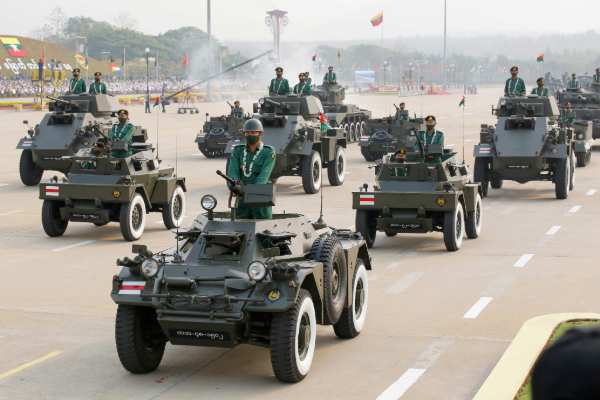Thai Prime Minister Srettha Thavisin told Reuters that now is a good time to open talks with Myanmar as the military regime that seized power in a 2021 coup is weakening.
“The current regime is starting to lose some strength,” Srettha said in an interview on Sunday, adding, “but even if they are losing, they have the power, they have the weapons.”
“Maybe it’s time to reach out and make a deal,” he added.
Myanmar is in the throes of an insurgency on multiple fronts, where allied anti-junta groups backed by a pro-democracy parallel government have seized control of several military posts and towns.
On Friday, hundreds of troops guarding the border town of Myawaddy agreed to surrender. This town serves as a vital hub for Myanmar’s overland trade with Thailand.
The Karen National Union confirmed the acceptance of surrender from a battalion stationed in the nearby town of Thanganyinaung. A video released by the Karen forces showcased their jubilation as they displayed a substantial cache of captured weapons, BBC reported.
It is the biggest challenge the Myanmar junta has faced since it mounted a coup against an elected government in 2021.
The overthrow comes at a time when the army seems to be losing control over large areas along the Chinese border in Shan State and in Rakhine State near the Bangladeshi border.
The strength of the forces has significantly depleted, with casualties, surrenders, and defections prompting the government announcing new rules for conscription.
A turning point occurred when a powerful militia, previously allied with the military junta, switched sides, further eroding the regime’s control in Karen State. The military’s inability to reinforce positions due to engagements in other parts of the country has led to the loss of key roads to the border.
Meanwhile, the Indian government has urged its citizens residing in Myanmar’s Rakhine state to evacuate the region immediately, citing the escalating security crisis.
With inputs from Reuters





